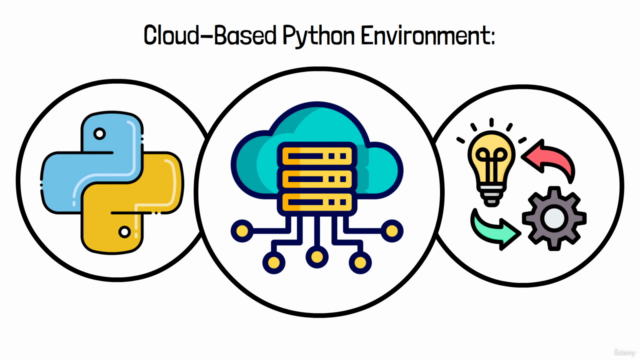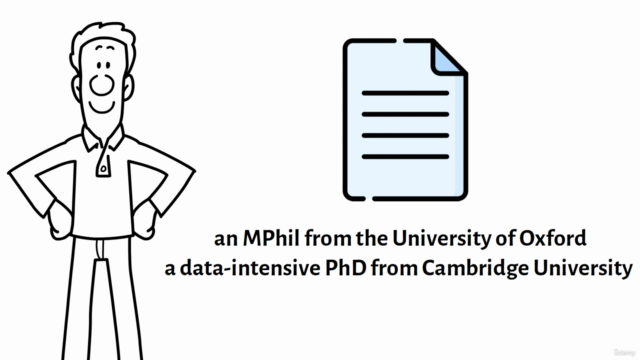Introduction to Large Language Models (LLMs) In Python

Why take this course?
🎓 Course Title: Introduction to Large Language Models (LLMs) In Python
Headline: Develop Your Own Document-Reading Virtual Assistant With LLMscourse instructor: Minerva Singh
Course Description:
Dive into the fascinating world of artificial intelligence with our online course, "Introduction to Large Language Models (LLMs) In Python." This course, designed by Minerva Singh—an MPhil graduate from the University of Oxford and a data-intensive PhD holder from Cambridge University—will guide you through the intricacies of implementing large language models. With a focus on practical application using Python, this course is tailored for individuals eager to build their own Document-Reading Virtual Assistant.
🔍 Course Highlights:
-
Cloud-Based Python Environment: Learn to harness the power of cloud computing with Saturn Cloud, providing you with a robust, cloud-based Python environment for your LLM projects.
-
Practical Text Analysis: Master the art of Natural Language Processing (NLP) by implementing techniques such as entity recognition and keyword extraction to deconstruct complex text documents.
-
Leveraging LLM Frameworks: Get hands-on experience with popular LLM frameworks, including LangChain, OpenAI, and LLAMA-Index, for tasks like abstract summarization and advanced querying.
Why Enroll in This Course?
Embark on a transformative learning journey that will equip you with the skills to harness the vast potential of text data using Large Language Models (LLMs). With our comprehensive course content and the guidance of an experienced instructor, you'll navigate the complexities of LLM implementation and emerge as an expert in AI and data science.
-
Expert Guidance: Learn from an instructor with a wealth of knowledge, holding an MPhil from Oxford and a PhD from Cambridge.
-
Community Support: Join a community of like-minded learners who are equally passionate about advancing their skills in AI.
-
Real-World Applications: Gain practical experience by applying LLMs to real-world scenarios, including developing your own Document-Reading Virtual Assistant.
Why This Course?
This course is more than just theoretical knowledge—it's a hands-on experience that will prepare you for the future of AI and data science. By enrolling, you'll not only gain access to cutting-edge tools and techniques but also receive continuous support throughout your learning journey.
🌟 Enroll Now! 🌟
Take the first step towards mastering LLMs with Python. Unlock the power of text analysis and create intelligent applications that can read, understand, and interact with documents like never before. Enroll in "Introduction to Large Language Models (LLMs) In Python" today and join a new wave of AI enthusiasts! 🚀
Enroll now and transform your understanding of artificial intelligence, text analysis, and machine learning with our expert-led course on Large Language Models (LLMs) using Python. This is your opportunity to be at the forefront of AI innovation—don't miss out! 🌐✨
Course Gallery




Loading charts...
Comidoc Review
Our Verdict
This course on Large Language Models (LLMs) in Python dives deep into the world of LLMs, covering frameworks such as LangChain and their practical applications. The real-world projects offer valuable hands-on experience, yet there's room for improvement in terms of presentation and clear explanations. While it addresses unique topics like security challenges, some users may find parts of the course confusing due to missing details or a lack of proper introductions to certain tools.
What We Liked
- Covers a range of LLM frameworks including LangChain, with practical applications in document-reading virtual assistants
- Well-structured and educational, providing a solid foundation in LLMs
- Includes real-world projects that allow for hands-on experience
- Addresses unique topics such as quick engineering and security challenges of hosting LLM apps in production
Potential Drawbacks
- Presentation could be improved, with more explicit explanations of the intent behind the code
- Lacks proper introductions to certain tools and frameworks, assuming prior knowledge or completion of previous courses
- Some important functions or details were missed out during instruction
- Occasional issues with code not functioning as shown